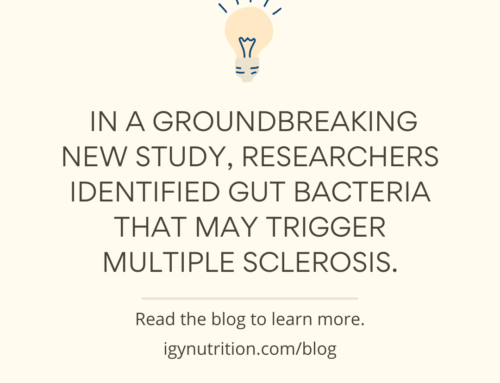In today’s “clean-obsessed” world, people sanitize every surface of their homes and themselves. The belief that all bacteria is harmful has stuck, but it’s not entirely true. Some bacteria is actually good for you. And being exposed to some of these bacteria could help you stay healthy.
So, there is growing concern that, in our anxiety to banish bacteria from our indoor world, we have become too clean for our own good. By constantly sanitizing our environment, we run the risk of getting rid of all the beneficial bacteria in our homes that actually make our immune system stronger. [1]
These bacteria, viruses, and fungi that we share our homes and offices with are called the “indoor microbiome.” And recent studies are showing that keeping your home overly sanitized isn’t good for your children’s health.
According to the “hygiene hypothesis”, spending over 90 percent of our time in the bacteria-poor environment of our insulated homes (especially as we do early in our life when our immune systems are developing), can cause our bodies to overreact to harmless substances later on, making us sick. [1]
This is where our beloved companions come in. As it turns out, dog-borne microbes may be working to keep us healthy. Exposure to dogs in early infancy has been shown to reduce the risk of childhood allergic disease development [3] , and it may be a result of the diversity of microbes that these animals bring inside our homes.[1]
Indeed, exposure to animal micro-organisms during the first three months of life has been shown to help to stimulate a child’s immune system so that it doesn’t become overly sensitive later in life. [1] This is because dogs add a lot to the diversity of the indoor microbiome. In fact, research has shown that owning a dog can raise the levels of 56 different types of bacterial species in the indoor environment. [1]
How does that help? It’s not entirely clear yet, but researchers think that exposure to pet dander, as well as the microbes that pets carry into the home from outdoors, could help infants develop stronger immune systems by training their bodies early on to fend off assaults from common allergens and bugs, such as from animals or other bacteria and viruses.[4]
Scientists have even found that a lack of bacterial diversity in a baby’s gut microbiome can help predict whether or not he or she develops asthma or allergies later in life. Researchers led by a team from the University of California San Francisco (UCSF) found that infants with less bacteria and more fungi made them three times more likely to develop allergies and asthma than their peers. [2]
These results suggest that the presence or absence of specific bacterial species in one’s microbiome can dramatically alter the adaptive immune environment. [3]
Other human studies appear to support this concept. For instance, a large European birth cohort study demonstrated that a significant increase in the number of Escherichia coli or Clostridium difficile bacteria in fecal samples from 3-week-old infants was associated with a greater risk of developing a spectrum of childhood allergic diseases.

On the other hand, exposure to livestock or pets, particularly dogs during this early-life period, has been shown to significantly decrease the risk for disease development.
By increasing infants’ early exposures to a diverse microbial environment, pets can have a positive influence on the development of the microbiome and the adaptive immune response, thus contributing to a healthy and prepared immune system. [3]
Despite the abundance of new studies supporting this hypothesis, research into how pet microbes affect the human gut microbiome remains at an early stage.
So, the bottom line here is this: you shouldn’t get a dog specifically to protect your child from colds, but you also don’t need to worry about getting rid of Fido out of fear that he may do harm by nuzzling up to your newborn.
References:
1. https://www.nytimes.com/2017/06/06/well/family/are-pets-the-new-probiotic.html
2. https://qz.com/779417/predicting-asthma-or-allergies-using-a-babys-microbiome/
3. http://www.pnas.org/content/111/2/805.full
4. http://healthland.time.com/2012/07/09/study-why-dogs-and-cats-make-babies-healthier/




